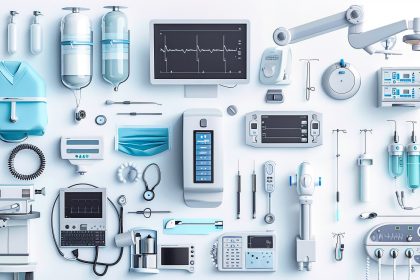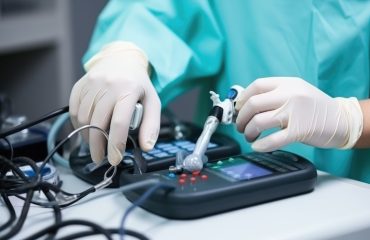
In the fast-paced world of medical device wholesaling, efficiency and cost-effectiveness are crucial to stay competitive. Elisilac, a leading medical device importer, importer of medical supplies, diagnostic equipment supplier, understands the importance of implementing top strategies to optimize their operations. In this blog, we will explore the key strategies that Elisilac utilizes to excel in the industry, providing insights to help other medical device wholesalers achieve efficiency and cost-effectiveness.
Streamlining Supply Chain Management
Efficient supply chain management is essential for successful medical device wholesaling. Implement the following strategies:
- Efficient inventory management: Accurately track inventory levels and demand patterns to minimize excess inventory and reduce carrying costs.
- Automated ordering systems: Utilize automated systems to streamline the procurement process and ensure timely delivery of products.
- Real-time data analytics: Leverage advanced analytics tools to gain valuable insights into demand patterns, enabling proactive decision-making.
- Strong supplier relationships: Establish strong partnerships with reliable suppliers, negotiating favorable terms and ensuring a smooth flow of products.
Effective Pricing Strategies
Pricing plays a crucial role in medical device wholesaling. Optimize pricing with the following strategies:
- Market research: Conduct thorough market research to understand pricing trends and competitive landscapes, enabling you to set competitive prices.
- Dynamic pricing models: Adjust prices based on market conditions and demand fluctuations, maximizing profitability while remaining competitive.
- Volume-based pricing structures: Offer tiered pricing options based on order volume, incentivizing customers to increase their purchases.
- Negotiating favorable contracts: Negotiate contracts with manufacturers to secure better pricing terms, allowing you to pass on cost savings to customers.
Optimizing Logistics and Distribution
Efficient logistics and distribution ensure timely delivery of medical devices. Focus on the following strategies:
- Logistics software: Utilize advanced logistics software to optimize route planning, minimize shipping costs, and enhance delivery efficiency.
- Just-in-time inventory management: Adopt a just-in-time approach to minimize storage costs and reduce the risk of obsolete inventory.
- Efficient packaging and shipping methods: Invest in packaging solutions that protect products during transit while optimizing space utilization to reduce shipping costs.
- Collaboration with third-party logistics providers: Partner with reliable third-party logistics providers to leverage their expertise and ensure efficient delivery operations.
Embracing Technology
Technology adoption streamlines operations and provides a competitive edge. Embrace the following technological strategies:
- Integrated ERP system: Implement an integrated Enterprise Resource Planning (ERP) system to streamline various processes, such as order management, inventory control, and financial management.
- Cloud-based solutions: Utilize cloud-based solutions to enhance data accessibility, promote collaboration, and improve overall operational efficiency.
- Automation: Automate repetitive tasks, such as order processing and inventory tracking, freeing up resources for more value-added activities.
- Artificial intelligence for predictive analytics: Leverage artificial intelligence and predictive analytics to forecast demand patterns, allowing proactive inventory management and optimized purchasing.
Enhancing Customer Service
Exceptional customer service builds strong relationships and fosters loyalty. Focus on the following strategies:
- Personalized support and guidance: Offer personalized assistance to customers, providing product recommendations and addressing specific needs.
- Clear communication channels: Establish clear communication channels, ensuring prompt responses to customer inquiries and concerns.
- After-sales services and support: Provide comprehensive after-sales services, including technical support, training, and warranty assistance.
- Customer feedback and satisfaction programs: Actively seek customer feedback and utilize it to improve products, services, and overall customer satisfaction.
Investing in Staff Training and Development
A skilled and motivated workforce is crucial for success. Invest in the following strategies:
- Ongoing training: Provide regular training sessions to employees, keeping them updated on industry trends, new products, and best practices.
- Continuous learning and professional development: Encourage employees to pursue continuous learning and offer opportunities for professional development.
- Culture of innovation and creativity: Foster a culture that encourages employees to propose innovative ideas and solutions, driving continuous improvement.
- Recognition and rewards: Recognize and reward high-performing employees, motivating them to excel and contribute to the company’s success.
Collaborating with Healthcare Professionals
Building strong relationships with healthcare professionals is crucial. Prioritize the following strategies:
- Physician and healthcare provider relationships: Foster strong relationships with physicians and healthcare providers, understanding their needs and aligning product offerings accordingly.
- Participation in industry events and conferences: Actively participate in industry events and conferences, networking with healthcare professionals and staying updated on industry trends.
- Collaboration on research and development: Collaborate with healthcare professionals on research and development initiatives, ensuring product offerings meet market needs.
- Educational programs and resources: Provide educational programs and resources to healthcare professionals, empowering them with knowledge about new medical devices and technologies.
Ensuring Regulatory Compliance
Complying with industry regulations and guidelines is essential. Focus on the following strategies:
- Staying up-to-date with regulations: Keep abreast of evolving regulations and guidelines to ensure compliance.
- Robust quality assurance processes: Implement stringent quality assurance processes to maintain product quality and safety standards.
- Regular audits and inspections: Conduct regular audits and inspections to identify any compliance gaps and address them promptly.
- Collaboration with regulatory authorities: Collaborate with regulatory authorities to seek guidance and ensure compliance with changing regulations.
Implementing Sustainable Practices
Sustainability is increasingly important in the medical device industry. Adopt the following strategies:
- Waste reduction and recycling initiatives: Implement waste reduction and recycling programs to minimize environmental impact.
- Energy-efficient technologies: Invest in energy-efficient technologies, reducing energy consumption and carbon footprint.
- Partnerships with environmentally conscious suppliers: Collaborate with suppliers who prioritize sustainability, supporting a more sustainable supply chain.
- Educating stakeholders: Educate stakeholders about sustainable practices, fostering awareness and encouraging collective action.
Monitoring Key Performance Indicators
Monitoring key performance indicators (KPIs) is essential for measuring success and identifying areas for improvement. Track the following KPIs:
- Sales performance and revenue growth: Monitor sales performance and revenue growth to evaluate market penetration and identify growth opportunities.
- Inventory turnover rates: Analyze inventory turnover rates to ensure optimal inventory management and minimize holding costs.
- Customer satisfaction and retention rates: Track customer satisfaction and retention rates to gauge the effectiveness of customer service strategies.
- Operational efficiency and cost savings: Measure operational efficiency and cost savings to identify areas for optimization and cost reduction.
Conclusion Efficiency and cost-effectiveness are paramount in the medical device wholesaling industry. By implementing these top strategies, medical device wholesalers can enhance their operations, achieve cost savings, and position themselves for long-term growth in the competitive market.




